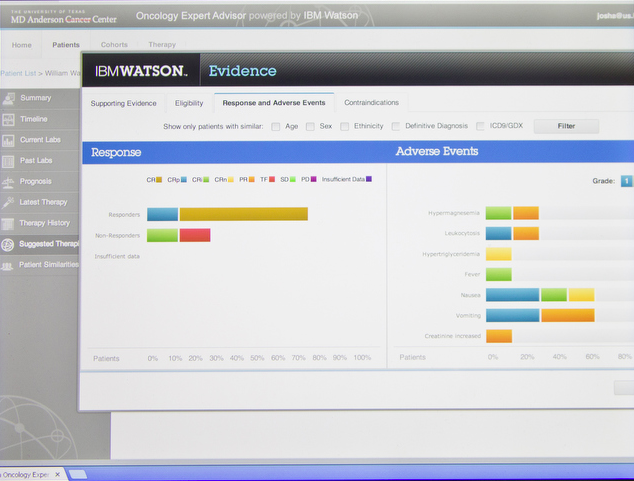Watson joins the fight against cancer

"The volume of healthcare information is increasing tremendously and probably accelerating," Josko Silobrcic, MD, associate partner at IBM Research and a professor at Harvard University School of Public Health, told Healthcare IT News in 2011. "That exceeds the training of healthcare providers, as well as their ability to keep up with it. We all know how busy clinicians are."
Watson is also expected to play a key role within APOLLO, a technology driven "adaptive learning environment" that MD Anderson is developing as part of its Moon Shots program. APOLLO enables iterative and continued learning between clinical care and research by helping streamline and standardize the longitudinal collection, ingestion and integration of patient's clinical history, lab data and research data into MD Anderson's centralized patient data warehouse.

Once aggregated, officials say, this complex data will be linked and made available for deep analyses by advanced analytics to extract novel insights that can lead to improved effectiveness of care and better patient outcomes.
"IBM Watson represents a new era of computing, in which data no longer needs to be a challenge, but rather, a catalyst to more efficiently deploy new advances into patient care," said Manoj Saxena, general manager, IBM Watson Solutions, in a press statement. "By helping researchers and physicians understand the meaning behind each other's data, we can empower researchers with evidence to advance novel discoveries, while helping enable physicians to make the best treatment choices or place patients in the right clinical trials."
[See also: Watson heads to medical school]
























